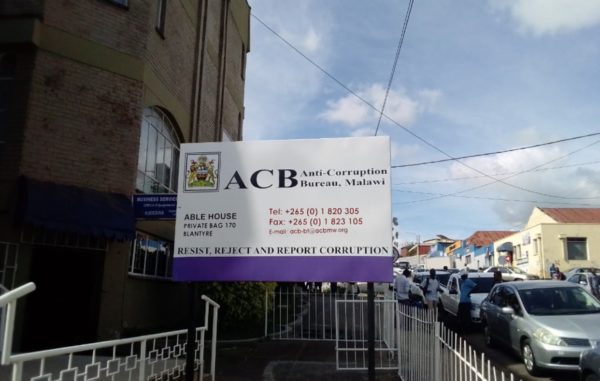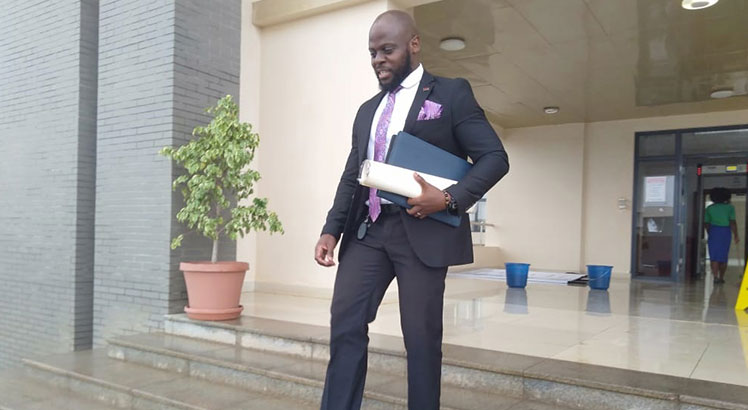ACB lobbies for funds
It has emerged that while the Anti- Corruption Bureau (ACB) has had its budgetary allocation increased on paper, it expects a bumpy ride financially this coming fiscal year.
Lobbying for additional funding, ACB deputy director general (DG) Hilary Chilomba yesterday told the Joint Parliamentary Budget Cluster on Legal Affairs and Government Assurances to scrutinise its allocation in the 2023/24 National Budget that financial shortfalls it faces include lack of specific funding for the implementation of National Anti- Corruption Strategy (NACS II).

“We had to divert some funds allocated for operations because the NACS II is equally important in the fight against corruption, but this affected some of our operations,” he said.
Chilomba said the bureau expects to face the same problem in the 2023/24 financial year as Treasury has again not provided specific funding for NACS II implementation despite increasing the allocation to ACB to K7.29 billion from K6.31 billion in the 2022/23 fiscal year which was revised to K7.17 billion during Mid- Year Budget Review.
He said in the coming year, the bureau is likely to face mobility challenges as they do not have enough vehicles to cater for old and new staff.
The bureau has been allocated K200 million for purchase of vehicles, including a Toyota Landcruiser TX, estimated at K150 million, for the deputy director general.
Chilomba said other potential challenges include inadequate funds for personal emoluments and slow pace of construction of the ACB office complex project due to inadequate development funds.
Speaking on behalf of the cluster, the joint committee’s co-chairperson Jappie Mhango said the purchase of the vehicle for the deputy director general is non-negotiable as it is provided for in the ACB Act.
He said: “There is really a big challenge because the bureau has no choice, but to purchase the deputy director general’s official car but we also know that the bureau has recruited new staff who will require movement.”
The bureau has laid out plans for 2023/24 financial year which include motivational talks in schools, community awareness workshops, training for Institutional Integrity Committees (IICs), integrity tests for eight selected institutions, procurement audits for two selected institutions, review of ACB Strategic plan and the NACS II.
In an interview after the meeting, Mhango said the cluster has noted all issues regarding allocation shortfalls raised by ACB and promised to act on them.
“Most of the concerns are genuine and we will engage Treasury to see if there could be a way to allocate more funds because at the end of the day, we want results from ACB,” he said.
During the meeting, members of the cluster quizzed ACB on the slow progress of corruption-related cases and noted that the bureau rushes to make arrests without thorough investigations.
Machinga Likwenu legislator Bright Msaka (Democratic Progressive Party-DPP) warned the bureau against getting excited with making public arrests without evidence.
“I wonder whether you make thorough investigations before effecting an arrest. Let me urge you to stop arresting for public theatre because it backfires on government when you lose cases,” said the legislator, who is a lawyer.
His views were echoed by other cluster members who took turns asking the bureau why some cases take long to be completed and what they are doing to clear the backlog of cases.
Chilomba said in the 2022/23 financial year, the ACB received and processed 914 complaints and recommended 30 percent for investigation.
He further said the bureau investigated 457 cases out of which 178 were completed and 38 were recommended for prosecution.
Said Chilomba: “The bureau prosecuted 12 cases, whose judgements were delivered while as of 28th February 2022, 15 cases were completed and awaiting judgement.
“The bureau also commenced 29 new cases and continued with 87 cases brought forward from previous years.”
The graft fight has come under public scrutiny in recent years. In an earlier interview with The Nation, ACB director general Martha Chizuma mentioned financial constraints, the public’s impatience and pressure to see conclusion of corruption cases as some of the challenges that frustrated efforts.
The Judiciary has also previously been mentioned as contributing to the delays, but Chief Justice Rizine Mzikamanda said the establishment of the Financial Crimes Division of the High Court of Malawi is expected to expedite prosecution.





